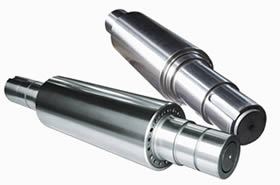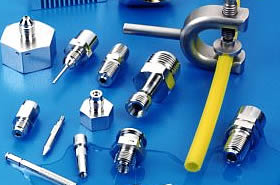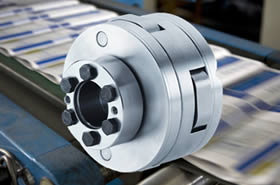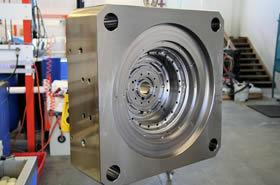Electroless Nickel & Your Industry
Electroless Nickel: The Savior
Since the discovery of Electroless Nickel deposition by Brenner and Riddell in 1946, the versatility of this coating has found almost infinite applications in industry. High corrosion and wear resistance, excellent adhesion, low coefficient of friction and uniform thickness of coating make Electroless Nickel the specified coating for many applications.
Plastic Goods Manufacturers & Moulds & Die makers
The ability of Electroless Nickel to provide a uniform deposit even into deep recesses, helps to ensure the finish on a mould will duplicate the original surface. The natural lubricity of the coating provides smooth flow during injection and quick and easy release of part. Because of its high hardneess at elevated temperatures, EN minimizes erosion and abrasion of moulds and dies and helps to extend their lives. This also provides excellent protection against the corrosive fumes produced during moulding such as plastic ABS, PVC, polycarbonate, acrylics and materials with thermoplastic additives. Plating of water channels/galleries helps eliminate scale formation in these areas. Typically, 5 microns would be plated on to toolparts and 25 microns on to extrusion dies.

Petroleum & Chemical Industry
The petroleum and chemical industries are the largest users of Electroless Nickel for corrosion protection. High phosphorus EN deposits of 25 to 75 microns thickness are commonly used to resist corrosion and erosion in aggressive brines, acids and gases. Common applications include valves, chockes, blowout preventors, mud pumps, sucker rod and submersible pumps, pipes, heat exchanges and separators, packers, safety valves, production tubing, and all types of down-hole tools.

Medical & Pharmaceutical
Electroless Nickel is also used for medical and pharmaceutical equipment because of its superior corrosion and wear resistance. This equipment is often subject to severe abuse, but must remain completely reliable. EN provides almost complete resistance to these environments and frequently allows steel or aluminum to be used instead of more expensive stainless steel. Typical medical applications are scissors, suture needles, clamps, forceps, and hubs for disposable hypodermic needles. In the pharmaceutical industry, extruders, sizing screens, pill sorters and filling equipment are common applications.

Printing & Textile Industries
The use of Electroless Nickel for the cylinders and rollers used in the printing and textile industries has grown greatly during the past several years. The ability of the coating to deposit uniformly allows the cylinder to be machined to size, balanced, and plated without subsequent finishing or grinding. Typical coating thickness are 25 to 50 microns. The life of this equipment is also greatly extended by the lubricity and wear resistance of EN. Other common textile applications include thread guides, fiber feeds, fabric knives, bobbins, shuttles, rapiers, knitting needles and picks.

Packaging & Food Handling Machinery
With packaging & food handling equipment, Electroless Nickel, is also used because of its excellent wear and corrosion resistance. The coating provide an attractive finish and help to ensure the cleanliness of the part. EN deposits are used to handle such diverse products as sodium hydroxide, food grade acids and fish oils. Its uniform deposit is especially useful for hydraulic cylinders, worm feeds and extruders, shaft, chain belts, mechanical sorting equipment and other close fitting parts. Common food handling applications include canning machinery, hamburger molds and grills, bun warmers, baking pans, fryers, commercial ice cube makers and chocolate molds.

